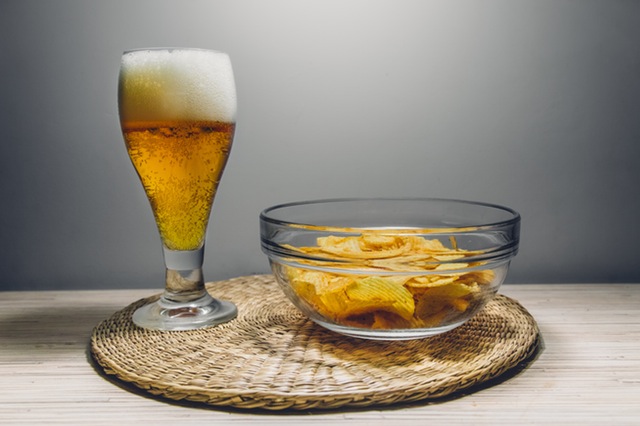The extremely popular junk food make up the majority of the modern diet. Many foods in this category–highly processed foods, salted snack foods, gum, candy, sweet desserts, fried fast food and sugary carbonated beverages–can conveniently be found everywhere and is available 24/7. While some may appear harmless enough (e.g. breakfast cereals), these contain mostly sugar or high-fructose corn syrup and white flour or milled corn.
So why is junk food so good, yet so bad? Here are five reasons junk food is ruining you:

1. Junk food contains “empty calories.”
Merriam-Webster defines junk food as “food that is high in calories but low in nutritional content.” It is low in fiber, high in fat and contains a lot of sugar; a high amount of calories can be found in a very small amount of junk food.

2. Junk food can lead to overeating.
It is low in satiation value and high in palatability. That means people do not tend to feel as full when they eat junk foods and it tastes so good which leads to eating too much at one sitting leading to weight gain and obesity. Obesity is defined by a body mass index (BMI) of 30 or higher. The BMI is a calculation based on a person’s height and weight. A BMI of 40 indicates extreme obesity.

3. Junk food tends to replace other, more nutritious foods.
After satisfying your appetite with too much soda, cookies and chips, you will be less likely to eat healthy foods like water, fruits and vegetables. You may be eating a lot of food but your body may not be getting the nutrients it needs to be healthy.

Photo from stock.tookapic.com via Pexels
4. Junk food’s loaded with bad stuff.
The excessive amounts of salt, fat, carbohydrates and processed sugar found in junk food lead to an increased risk of chronic health conditions such as hypertension, cardiovascular disease, diabetes and weight gain, to name a few.

5. It has lots of preservatives.
Junk food contains preservatives such as nitrates and additives, such as glutamic acid to enhance the flavor but are bad for a person’s health. These may cause memory and learning problems.
Ideally, these foods should be totally eliminated from the diet but realistically speaking living healthy in a junk food-filled world with temptation at every corner is next to impossible. So what can a person do?
Make small but sustainable changes in your diet. Add a vegetable or fruit serving at lunch or dinner. When dining out, choose restaurants that offer healthier choices. When buying food at the grocery, look for products that are low in sugar, high-fructose corn syrup, milled grains and partially hydrogenated oils. The American Heart Association recommends eating a variety of fresh, frozen and canned vegetables and fruits without the high-calories sauces or added salt and sugars. Snack on fruit, vegetable sticks, unbuttered and unsalted popcorn or bread sticks. Drink water or club soda.
